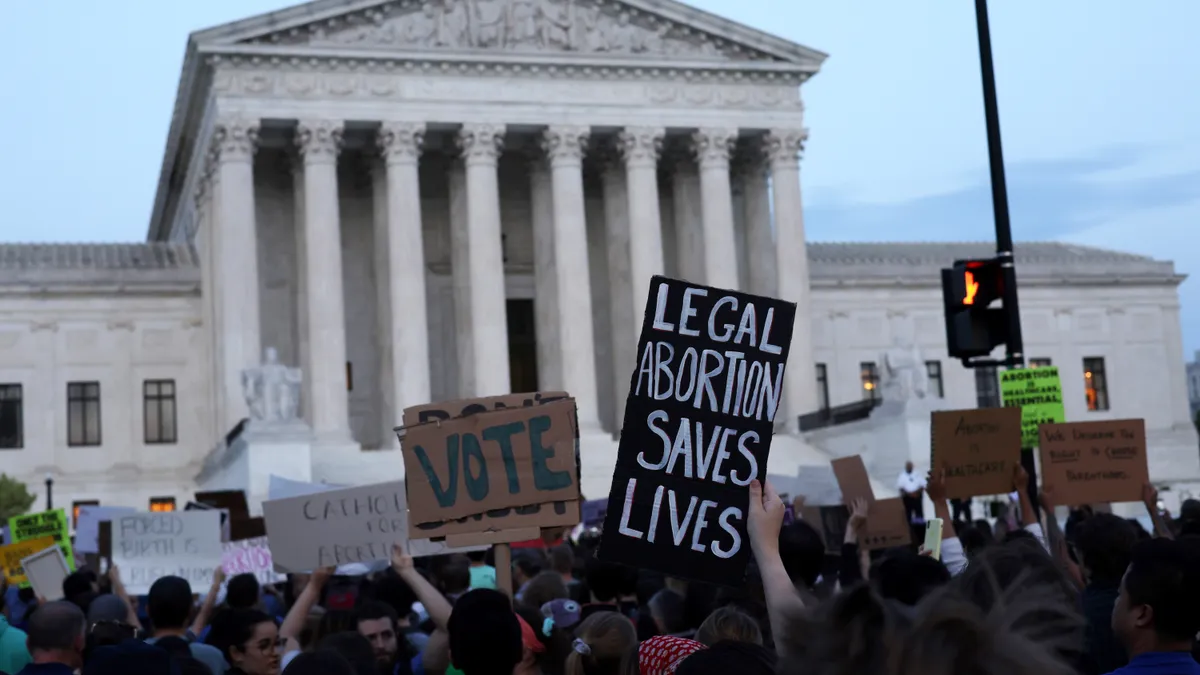Companies with self-funded insurance plans promising to pay employees’ abortion-related travel costs might find the Employee Retirement Income Security Act (ERISA) gives them only limited protection against retaliatory state laws, benefits specialists say.
Dozens of major companies have vowed to help employees cover costs of out-of-state travel for abortions to states where that remains legal after the Supreme Court’s controversial June 24 Dobbs decision ending more than 50 years of abortion protection on privacy grounds.
Companies got a taste of what’s to come when a group of Texas lawmakers sent a letter to Lyft CEO Logan Green that they plan to introduce bills to bar companies from doing business in the state if they pay for abortion travel costs, as he has pledged to do.
“The state of Texas will take swift and decisive action if you do not immediately rescind your recently announced policy to pay for the travel expenses of women who abort their unborn children,” said the letter by 14 members of the state’s lower house.
Federal preemption
For companies that pay for abortion-related expenses as part of a self-funded health insurance policy, ERISA gives them some protection, because the law bars states from saying what health plans can and can’t cover.
Katy Johnson, senior counsel for health policy at the American Benefits Council, told Reuters that any company sued over an abortion travel reimbursement requirement will likely cite ERISA as a defense, particularly if the policy already has a general medical-related travel allowance.
“While this may seem new, it’s not in the general sense and the law already tells us how to handle it,” Johnson said in the Reuters report.
Criminal liability
But while states can’t dictate what these self-funded plans cover, ERISA can’t prevent states from going after companies on criminal grounds.
That means companies could be held liable in states that have made aiding and abetting abortion a criminal offense, as some have or are seeking to, although it’s not clear how aggressively states will actually go after companies on these grounds.
Among other things, states face a legal presumption, known as the extraterritorial application of state law, that they shouldn’t cross into other states to enforce their laws, according to an analysis by Morgan Lewis.
"It’s unclear whether a court would or could find that an abortion performed in another state legally violates Texas's anti-abortion law, but I suspect we will see someone bring that suit," Meredith Kirshenbaum, a principal at Goldberg Kohn, told the Society of Human Resources Management. "I also suspect we'll see states push the limits in drafting private right of action provisions to address abortions performed across state lines."
Fully funded plans
The liability issue is even more complex for companies that have fully funded plans with commercial carriers, because unlike self-funded plans, these are outside the scope of ERISA and subject to state insurance regulations.
That means companies will have to conform their coverage to each state’s rules.
Since most small and medium-sized companies rely on these fully funded commercial plans because of their lower costs, the bulk of the compliance headache could fall on the companies with the fewest resources to deal with it.
"Given the novel conditions [presented by overturning Roe], any such policy, program or offering is not without risk, and employers should consult with their brokers, administrators, carriers and ERISA counsel to weigh such risks and to discuss the best path forward given the particular facts and circumstances," an analysis by Davis & Gilbert said.











